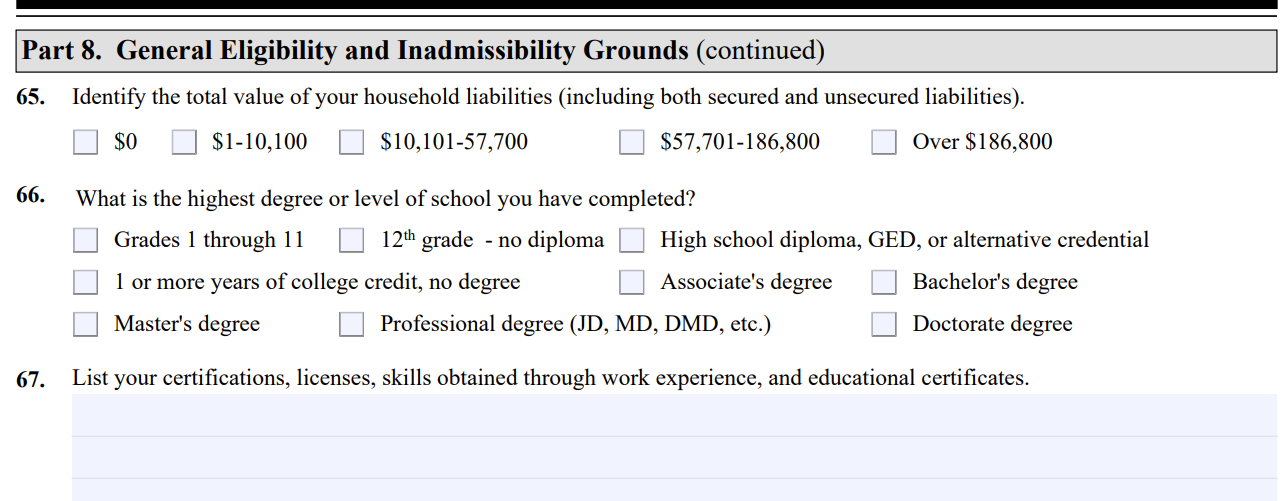Starting about five years ago, Public Charge became a hot topic issue and caused a lot of confusion and panic. By way of background, Public Charge refers to a part of immigration law that was created in 1882 that allows the U.S. government to deny a visa if they believe the applicant will not be able to support themselves and will have to depend on government resources. For over a hundred years, immigration considered things like age, health, family status, education, and skills to determine whether someone might become a public charge or not. Of course, this part of the immigration law does not apply to refugees, asylees, and other humanitarian categories. Up until the Trump administration, getting a visa denial because of a finding of public charge was not commonplace.
Then, beginning in 2018, the Trump administration changed immigration policy in a drastic way. It directed immigration to widen the circumstances under which it would deny applicants’ their visas because of a Public Charge finding. The effects were devastating, in particular, for applicants whose spouses and children were U.S. citizens and who, for whatever reason, had to rely on government assistance, for which the U.S. citizens have a right to do. This meant the applicant was being penalized for the actions of their U.S. citizen family members. Many people had to stop their immigration process for fear of being denied at a consular post outside of the U.S. In some cases, applicants were stranded during their interview in their native country.
Thankfully, under the Biden administration, the government has restored its traditional interpretation of Public Charge and taken further steps to confirm this definition in a rule, published in September, 2022. The new rule, summarized below, will apply to applications postmarked or electronically filed on or after December 23, 2022.
The government must review all of the following factors in a “totality of the circumstances”:
- The applicant’s age, health, education, family status, assets, and skills.
- The filing of an Affidavit of Support (Form I-864) by the petitioner.
- The applicant’s prior or current receipt of certain government aid like: Supplemental Security Income (SSI); cash assistance (TANF); state, tribal or local cash benefit programs for income maintenance (General Assistance); or long-term institutionalization paid by the government.
Indeed, for those applying now for adjustment of status and using the new edition of Form I-485 (in effect December 23, 3022) will find new questions designed to draw out these factors:

https://www.uscis.gov/sites/default/files/document/forms/i-485.pdf
There are, fortunately, certain benefits that will not be considered in analyzing whether someone is a Public Charge. These exempted benefits seem to take into account the general health and well-being of our society: Supplemental Nutrition Assistance Program (SNAP); Children’s Health Insurance Program (CHIP); Medicaid (non-long-term institutionalization); housing benefits; disease-testing and immunization benefits; emergency and disaster relief.
While there has been much back and forth over the past 5 years over where applicants stand in the Public Charge analysis, the passage of the rule last fall should provide some stability and clarity for many years to come. It should prevent future administrations from changing the interpretation of the Public Charge definition so easily. If you are unsure about whether Public Charge will cause you problems in your application process, speaking with an attorney can help resolve those doubts.


